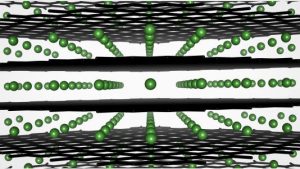
In use, lithium ions move in and out of the anode, which is usually made from graphite particles. The ions slide between the carbon atoms in a process called intercalation (see diagram).
When a battery is charged too quickly, the lithium ions tend to aggregate on top of the anode’s surface, resulting in damaging ‘plating’ behaviour.
“Plating is one of the main causes of impaired battery performance during fast charging,” said Argonne scientist Daniel Abraham. ”As we charged the battery quickly, we found that in addition to the plating on the anode surface there was a build up of reaction products inside the electrode pores.”
Using scanning electron nano-diffraction to observe at the atomic level, the team saw the carbon lattice near the surface of particles becoming permanently distorted from repeated fast charging (at up to 6C). The lattice disorder reached ~20nm into the particle and inhibited ions from drifting into the lattice edge to intercalate. Instead they plated on the particle surface.
“The faster we charge our battery, the more atomically disordered the anode will become, which will ultimately prevent the lithium ions from being able to move back and forth,” said Abraham . “The key is to find ways to either prevent this loss of organisation, or to somehow modify the graphite particles so that the lithium ions can intercalate more efficiently.”
The work is described in the extensive and clearly-written paper ‘Increased disorder at graphite particle edges revealed by multilength scale characterization of anodes from fast charged lithium-ion cells‘, published in the Journal of the Electrochemical Society, which also describes other damage mechanisms analysed in a comprehensive project with the University of Illinois Urbana-Champaign.
 Electronics Weekly Electronics Design & Components Tech News
Electronics Weekly Electronics Design & Components Tech News
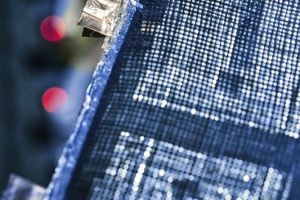
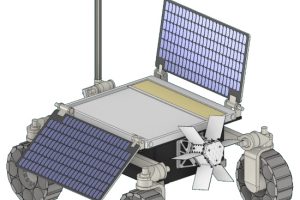
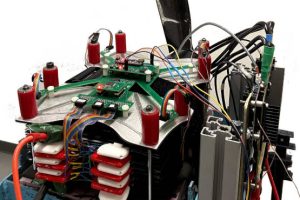
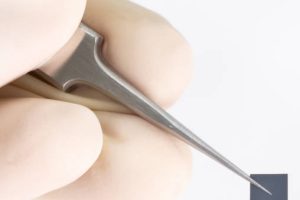
“Most of the Li-ion cells don’t like fast charging, but they can charge faster than NiMH batteries, The less you need to charge a battery, the less likely it is that your battery will suffer damage.
A fast charger might appear to be more effective since it charges at a higher current, but in reality, it may do more harm than good because the voltage increase would make the battery unstable at high currents and cause irreversible damage. Thank you for sharing the article.”